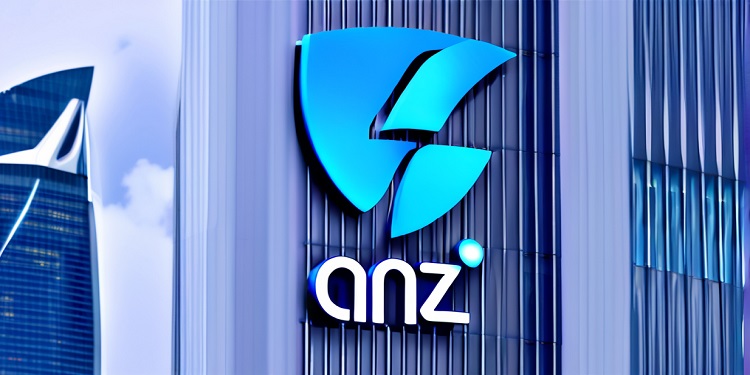Australia’s ANZ Bank has recently aligned itself with the Monetary Authority of Singapore’s (MAS) Project Guardian, a significant initiative aimed at exploring the potential of real-world asset (RWA) tokenization within financial markets. This move follows ANZ’s involvement in the Swift blockchain interoperability project, which began in June. Through its participation, ANZ aims to contribute to advancing the use of RWAs across blockchain networks, particularly in collaboration with Chainlink Labs, a blockchain oracle provider, and Singapore-based investment firm ADDX.
The announcement was made in a statement released on September 30, in which ANZ emphasized its goal of testing how RWAs, such as commercial papers, could be managed across multiple blockchains. This exploration is part of a broader effort to enhance blockchain-based financial systems and improve asset liquidity and market efficiency. Mark Evans, the Country Head of ANZ Singapore, expressed the bank’s enthusiasm for joining Project Guardian, highlighting MAS’s leadership in digitizing the financial system. Evans noted that this partnership aligns with ANZ’s objectives of creating a stable and secure digital asset ecosystem, which will ultimately benefit customers across the region.
Project Guardian, initiated by MAS two years ago, brings together financial sector participants and policymakers in a collaborative effort to explore the potential benefits of RWA tokenization. By converting traditional assets into digital tokens, the initiative aims to increase liquidity in financial markets and streamline processes through blockchain technology. RWAs represent assets from the physical world, such as real estate, commodities, and financial instruments like commercial papers, which can be tokenized and traded more efficiently through blockchain networks.
Nigel Dobson, ANZ’s banking services lead, pointed out that the bank is particularly interested in enhancing the movement of its Australian dollar-backed stablecoin, known as A$DC, across various blockchain networks. Dobson explained that the current tokenized asset market is highly fragmented, which complicates the seamless transfer of RWAs between blockchains. The bank plans to address this issue by utilizing Chainlink’s Cross-Chain Interoperability Protocol (CCIP), which enables assets to be transferred across different blockchain platforms. Chainlink’s community liaison, Zach Rynes, echoed this sentiment, stating that interoperability protocols like CCIP are essential for enabling the smooth movement of RWAs between blockchains.
Through Project Guardian, ANZ will benefit from local support as it continues its operations in Singapore. The project has previously engaged various financial institutions, including DBS Bank, SBI Digital Asset Holdings, WisdomTree, and S&P Global, as well as prominent global players like Deutsche Bank and JPMorgan, which has its own blockchain platform, Onyx. These trial initiatives are part of a larger effort to explore the potential of blockchain-based solutions in the global financial market.
The international reach of Project Guardian is underscored by its diverse policymaker group, which includes the International Monetary Fund and governments from the United Kingdom, Japan, Singapore, Switzerland, and France. These global policymakers work closely with financial institutions to ensure the development and integration of blockchain technology aligns with international financial standards and regulatory frameworks.
ANZ’s involvement in blockchain interoperability was further demonstrated in its recent partnership with Chainlink Labs. The collaboration allowed ANZ to connect blockchains for the international transfer and settlement of tokenized assets, particularly focusing on the Avalanche and Ethereum networks. This partnership is a significant step toward facilitating cross-chain transactions, which is essential for financial institutions that seek to integrate blockchain-based asset management into their operations.
In its efforts to explore the potential of on-chain digital assets, ANZ leveraged Chainlink’s CCIP to showcase how its clients could easily access, trade, and settle tokenized assets across various networks and in different currencies. This process, known as Delivery vs. Payment (DvP), highlights how blockchain technology can simplify asset settlement across international borders. To support this initiative, ANZ used its Avalanche Evergreen Subnet, which is designed for Ethereum Virtual Machine (EVM) compatibility, permissioning, and custom features such as a personalized gas token.
ANZ’s participation in Project Guardian and its collaboration with Chainlink Labs mark a significant step toward the integration of RWAs into blockchain ecosystems. As the global financial industry continues to explore digital asset solutions, initiatives like Project Guardian and ANZ’s cross-chain efforts are expected to play a pivotal role in shaping the future of asset tokenization and financial market efficiency. By leveraging blockchain technology, ANZ is positioning itself as a leader in the digital financial space, with the potential to revolutionize how real-world assets are managed and traded across blockchain networks.
